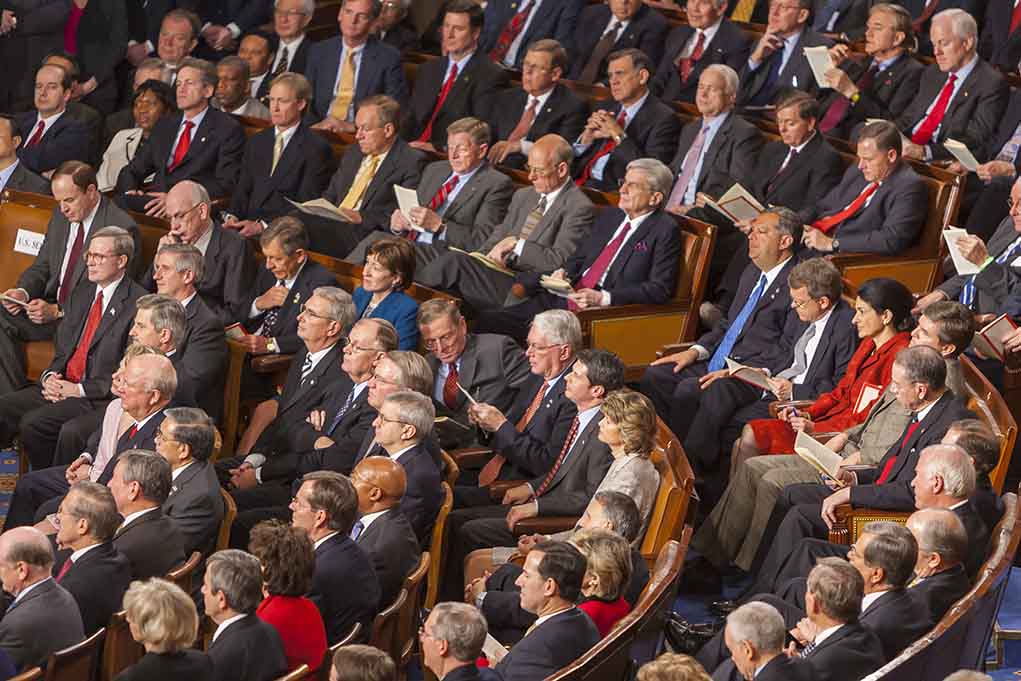
President Trump threatens to double tariffs on Spain after it became the only NATO nation refusing to commit to the new 5% GDP defense spending target, putting the country’s economic interests at risk.
Key Takeaways
- President Trump has threatened to make Spain “pay twice as much” in future trade deals after it became the sole NATO member to reject the new 5% GDP defense spending commitment.
- NATO leaders, under Trump’s influence, agreed to significantly increase defense spending to 5% of GDP annually by 2035, with Spain being the only holdout.
- Trump plans to negotiate directly with Spain, bypassing European Union trade protocols, as a July 9 deadline looms for EU trade deals.
- Most NATO members, including those closest to Russia like Poland and the Baltic states, have committed to the new spending target.
- Spain claims the 5% target would strain its welfare state, but faces criticism from other NATO allies who see its stance as undermining collective security.
Trump Takes Hard Line on NATO Defense Spending
President Trump has taken decisive action at the recent NATO summit by securing a commitment from alliance members to increase defense spending to 5% of GDP by 2035. This unprecedented agreement marks a significant shift in NATO’s approach to burden-sharing and collective defense responsibilities. Trump’s leadership on this issue has been acknowledged by alliance partners, with the President stating, “something that no one really thought possible. And they said, ‘You did it, sir. You did it.’ Well, I don’t know if I did it, but I think I did.” This achievement strengthens NATO’s defensive capabilities while addressing the longstanding concern that European allies were not contributing their fair share to collective security.
The new agreement includes a primary target of 5% GDP for core defense requirements and a secondary target of 1.5% GDP for broader defense-related spending, such as infrastructure improvements and cyber defense. This comprehensive approach ensures that NATO can effectively respond to evolving security threats, particularly from Russia. Most major NATO powers including Britain, France, Germany, and the Netherlands, along with countries bordering Russia like Poland and the Baltic states, have committed to this spending goal. The United States, already close to meeting the 5% benchmark, has set an example for other alliance members to follow.
Will Make Spain "Pay": Trump Threatens Tariffs Over NATO Defense Spending Holdout https://t.co/WKJMPGMIjP
— zerohedge (@zerohedge) June 25, 2025
Spain Stands Alone in Defiance
Spain has emerged as the sole NATO member rejecting the alliance’s new defense spending target, creating significant tension within the organization. The Spanish government has justified its position by claiming that meeting the 5% GDP target would place excessive strain on its welfare state. This stance has drawn sharp criticism from other NATO members who view Spain’s decision as undermining alliance unity and collective security commitments. Poland’s Deputy Prime Minister has been particularly vocal in condemning Spain’s position, highlighting the frustration felt by countries that face more immediate security threats from Russia and have committed to the increased spending requirements.
“Allies commit to invest 5% of GDP annually on core defense requirements as well as defense- and security-related spending by 2035 to ensure our individual and collective obligations,” SAID NATO leaders.
Spain’s refusal stands in stark contrast to the commitments made by other European nations, including those with similar economic profiles. NATO Secretary-General Mark Rutte described the summit as “transformational” despite this underlying division, emphasizing the progress made in strengthening the alliance’s defensive posture. A review of spending progress is planned for 2029 to assess compliance and evaluate the security threat from Russia. This timeline gives Spain several years to reconsider its position, but President Trump’s immediate response suggests that economic consequences may come much sooner.
“That economy could be blown right out of the water.”
President Trump threatens to double tariffs on Spain over its defense spending.https://t.co/ouvgaoFcoq
— NOTUS (@NOTUSreports) June 25, 2025
Trump’s Trade Pressure Strategy
President Trump has responded forcefully to Spain’s defiance by threatening significant trade consequences. He announced plans to make Spain “pay twice as much” in future trade agreements, effectively doubling tariffs on Spanish imports to the United States. This economic pressure tactic represents Trump’s determination to ensure all NATO members contribute fairly to collective defense. Trump’s approach bypasses traditional European Union trade protocols, as he stated his intention to negotiate directly with Spain, declaring, “I’m going to do it myself.” This direct approach aligns with Trump’s preference for bilateral negotiations and his focus on securing favorable terms for the United States.
The stakes are particularly high as the Trump administration has set a July 9 deadline for the European Union to agree to a trade deal. If no agreement is reached, tariffs on EU imports to the U.S. are set to increase to 50%. Spain’s NATO stance has now complicated these already tense trade negotiations, potentially exposing Spanish exports to even higher tariffs than those facing other EU members. President Trump’s strategy effectively links defense spending commitments to trade policy, creating a powerful incentive for Spain to reconsider its position on NATO funding.
Trump’s firm stance on NATO spending has significantly altered his view of the alliance. He has acknowledged that his perspective on NATO has changed, now seeing the organization as more equitable with the new 5% spending commitment. This shift represents a successful outcome of Trump’s long-standing pressure on NATO allies to increase their defense contributions. By securing this historic agreement while isolating the single non-compliant member, Trump has demonstrated effective leadership in transforming NATO into a more balanced alliance where all members shoulder appropriate defense responsibilities.




